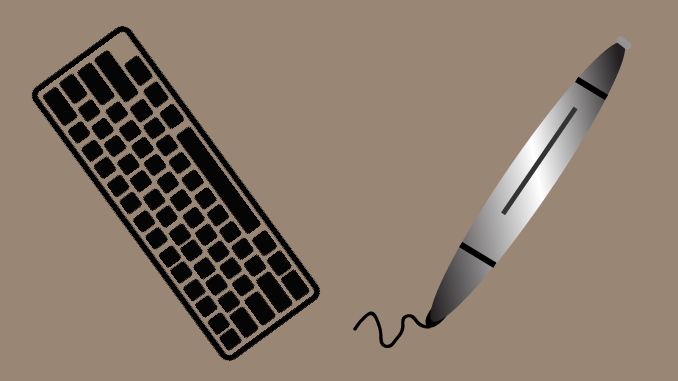When I would read my high school math class syllabus, I read it differently than most of my classmates did. While my teachers would specify that homework would only take between 45 minutes to an hour to complete, I read it as between three and four hours—because that’s how long it would take me.
Similarly, in elementary school, my teachers often employed group reading where we, as a class, would each read a passage by ourselves, and then come back together to discuss it. My teachers would instruct us to “put the book down when we were done.” As I listened to the thump of books falling onto desks and the pages fluttering as the covers were closed, I was typically between halfway and three-quarters done with the reading.
This is because of something called a slow processing speed.
It sounds like exactly what it is: it takes me a long time to process and transcribe information. It is not nearly as inhibiting as dyslexia, nor do I really consider myself particularly limited, as I am fine spending the extra time on homework. If anything, it forces me to pay more attention to what I’m doing. However, there is one instance in which I feel as though I am limited by this: in technology-free classrooms.
For reasons that are beyond me, my typing never suffered from my slow processing speed, which is why it became my preferred method of note taking during the fifth grade. I even learned how to construct diagrams and graphs for note taking during math and science classes. Life in the 21st century has alleviated some complications that accompany a slow-processing speed. Every so often though, I find a professor that is clinging on to their paper and pen—which is, in my opinion, archaic. To our esteemed Boston College professors: let your students type.
As I’ve already established, the enforcement of technology policies harm students with slow processing speeds. While it might not be intentional, these policies harm students who struggle to keep up in the note-taking process with handwriting. Personally, when I’m required to take notes, what I’m writing quickly devolves into something between chicken scratch and my own version of hieroglyphics. Professors are probably (reasonably) worried about students getting distracted—I get it. However, blanket policies like a simple ‘no technology’ do end up hurting students like me. Most of the time, I don’t even have time to write every letter, so I attempt to make a distinguishable shape that I will be able to puzzle together what I was writing down when I translate my class notes into something comprehensible.
Although it is possible to obtain an exemption from technology policies, this requires documentation from the Office of Students with Disabilities, which likely entails expensive and time-consuming testing, of which can cost so much that those who could benefit from acquiring such documentation are dissuaded from attempting to do so.
Professors will defend this policy by arguing that physically writing notes is better because students remember what they write better. To that I raise the following question: so what?
The entire purpose of taking notes is to have material to reference back to after the class is over, and if it is your goal to assist in your students’ comprehension of the material, then why should it matter if they recollect everything that was said in class? If anything, prohibiting the use of laptops, or other forms of technology, for note taking, limits many students’ ability to take notes on everything that is said in class. If you intend to test your students at the end of every class period on what was taught, then perhaps this paper-notes-only model makes sense, but if you’re teaching a class that is founded on prolonged retention of information, of which will be eventually be tested at a later date (like any normal class), then what is discussed in class is less important than what is recorded in notes.
And finally, this rule is very, very dated. We’ve been given great technology that enhances our ability, as students, to retain information, and prohibiting the use of technology is looking that gift horse straight in the mouth.
And, at the end of the day, are we not adults? While I appreciate the concern on the part of the professors in regard to our curriculum retention and the possibility of distraction, college should release us from the rigid confines of high school. At orientation, I was told that BC is not just an institution dedicated to servile education but to education of the self, and the education of the self should include developing and being able to exercise autonomy and discipline. It is on us to learn the curriculum with the tools available to us—it should not be the responsibility of the professor to handhold us into learning it.
So, to BC professors, for whom I have the utmost respect for, drop the antiquated, discriminatory policy of technology-free classrooms, and allow us, as adults, to be the responsible students we know we are.















